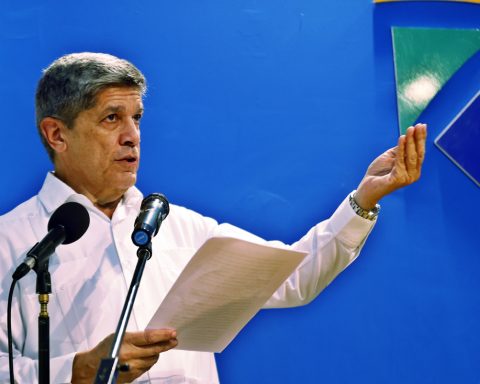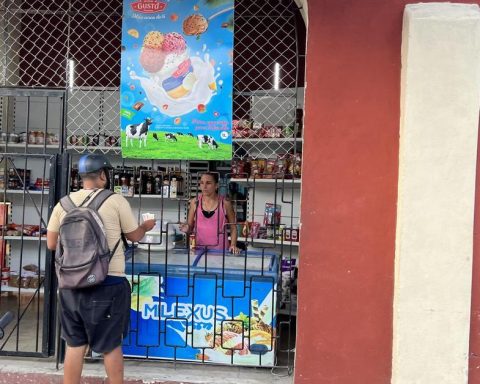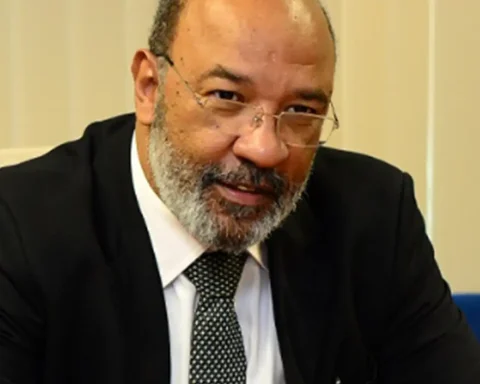Today, in campaign times, the commands for Approval and Rejection are organized and deployed territorially, while designing the story that will be part of their respective spaces on the television slot, which will begin next Friday, August 5. In this context, analysts agree that the strategy of each command is now to find the appropriate faces, who are credible and who have the ability to speak directly to the electorate, considering that voting is mandatory and in the midst of a hostile climate towards the political class in general, and to a constituent process that, according to the vast majority of surveys, does not have the best citizen evaluation.
Precisely, with a favorable position in several of the preliminary polls, the majority space is the Citizen Strip Command for Rejection, which made the decision – like its contenders – to structure itself based on a mix between political parties and organizations of the civil society. At the community level, the space is led by Chile Vamos (UDI, RN and Evópoli), in addition to the People’s Party (PDG) and Republicans. In addition, there are 377 civil organizations that will campaign for the Rejection – a number much higher than the 252 organizations registered by the Approval – among which only nine were chosen to participate in the command: Free Health, No More Victims, My Right to Educate, Mentors, Lobbyists, National Coordinator of Citizen Movements, Free and Diverse Education, Con Mi Plata No and Apyme. According to the contribution limit established by the Electoral Service (Servel), all these groups will be able to spend, together, almost $2,665 million on the campaign.
From the organization of the campaign they explain that the inclusion of these organizations is the result of a selective work of the parties that were deployed at the national level to contact leaders and spokespersons of these groups, with the aim of convincing them to participate in the fringe. A search that was adjusted to the strategy of the sector: that politicians remain in the background and that civil society be the visible face of the campaign. However, it is possible to verify that the majority of the 08, and in some cases, are former officials of the Government of Sebastián Piñera.
For weeks, there were national tours that involved the senator and president of the RN, Francisco Chahuán, and the deputy and general secretary of the party, Diego Schalper. The helmsman of the community, Javier Macaya, and the former deputy, María José Hoffmann, participated in the UDI. They toured regions such as Los Lagos, Ñuble, La Araucanía, Tarapacá, among others, and held meetings with representatives of the fishing and mining sectors, as well as artisans and farmers, among other unions and groups. Finally, and after this process, each party promoted the organizations that they felt were closest to their ideology.
In addition to this “official” command, there are eight other spaces that will carry out their own campaign for the Rejection, among which are “Hagámosla seriously”, a group headed by Mario Desbordes (RN), together with former members of the PRI such as his former President Rodrigo Caramori and other former DC, such as Adolfo Zaldívar Palma. In addition, the organization “Una que nos una” appears registered and of which Javiera Parada is the spokesperson, added to other organizations.
For its part, the Republican Action movement chaired by José Antonio Kast, and its executive director, Sebastián Figueroa, also signed up. In the case of Amarillos por Chile – led by Cristian Warnken – they chose to register in different territories of the country, through 49 organizations and name variations. The explanation for this strategy could be economic, since civil society organizations have an electoral spending limit of $150,976,921, so when adding the 49 registered groups, they could spend more than 7 billion pesos, more than any other movement registered in the campaign.
Faced with the question about the origin of the economic contributions to the campaign, and the financing of the organizations that these days deploy their campaign for Rejection, it is important to consider that the Constitutional Plebiscite does not contemplate making contributions through the Reception System. of Contributions, but these can be made directly by natural persons before the registered organizations in the manner stipulated by them. A norm that, according to electoral experts, generates the risk of having less control and therefore, that it is a less transparent process. As specified by the Electoral Service (Servel), the maximum contributions that a party can receive in a single donation is 500 UF, that is, about $16 million. For civil society organizations and independent parliamentarians, the funding limits are 500 and 60 UF, respectively.
In relation to the financing of the campaigns, a recent Servel report details that 99% of the donations that the campaigns for the Exit Plebiscite have received have been to the organizations of the commandos that are going for the Rejection. Among the donors is the former Minister of Economy of the first government of Sebastián Piñera, Félix de Vicente, with $2,800,000, in addition to the cattle rancher Cristián Hott Stange, who gave $2 million; along with Mónica Hott, owner of Lecherías Osorno and minority shareholder of Soprole, with $1,750,000. A similar amount was donated by one of Colún’s largest shareholders, Carlos Momberg Bórquez, who contributed to the organization “Milkmen of the South for Chile”.
But analysts agree that it is evident that substantial resources do not guarantee an electoral victory, and proof of this is that in the campaign for the Entry Plebiscite, more than 80% of the registered contributions were for the Rejection, an option that was widely defeated in the October 2020 elections. In this context, and beyond financing, the sociologist and director of Tú Influyes, Axel Callís, believes that what is at stake, for both commands, is to achieve the necessary credibility to reach those who do not they are convinced. In this regard, he considers that what the Government and the Approval are looking for is to promote a scenario that resembles as much as possible the presidential second round, trying to push his contender option as far to the right, which could add José Antonio Kast as a face in this last stage of the campaign. For Callís, the participation of figures from a harder right, such as Kast, “could scare away many of the center-left or former Concertación people who are now crossing the line in favor of Rejection.”
Who is it are citizen organizations for Rejection?
Among the nine organizations that were invited by the opposition parties to form the Citizen Strip Command for Rejection, is the Association of Small and Micro Entrepreneurs of Chile, SMEs CHILE, which is a guild that seeks to promote business linkage and market generation and employability. Its president, Jorge Peña, details that its main source of financing is the voluntary contributions given by its more than 23,000 members, and that its participation in the command is limited to a territorial role, due to its strong presence in regions. Peña added that “there have not been too many coordination meetings within the Command,” and that the talks have been guided by the political parties, which have played a coordinating role. He also reported that the Association he chairs was invited to participate in the meetings of the Finance Commission of the Constitutional Convention, but they did not attend, since they assumed that their voice would not be heard and that it was only an invitation “by courtesy”.
For its part, With my silver, is undoubtedly one of the organizations with the greatest visibility and participation in the mass media. It was born as a movement to reach the Convention with a Popular Initiative for Standards (IPN) that sought to defend the ownership of pension funds, but was rejected in the Commission on Fundamental Rights and did not reach the plenary session. Subsequently, they have continued to mobilize people related to their objectives and they already have more than 78,755 signatures that support them. Its main spokesperson is Francisco Orrego, a member of the National Renewal think tank, Instituto Libertad, founder of the University Right Center, and an active face in Cabilderos, another center-right organization linked to RN that will participate in the television slot. Connections with the right allowed Orrego to become an advisor to Bernardo Fontaine in the Convention, establishing an alliance that they have insistently sought to publicize: at the level of advertisements, the duo has invested approximately $8.1 million pesos in advertising on Facebook and Instagram, replicating their appearances in other media or creating their own infographics and pamphlets.
Another of the groups that will be present in the Rejection strip is the National “Coordinator” of Citizen Movements, from which another 60 organizations emerge, which promote causes of parents and guardians, entrepreneurs, university students, among others. Presided over by the councilman from Buin and former adviser to the undersecretary of Assistance Networks, Claudio Salinas (UDI), this organization promotes the establishment of a third way, through “a commission of experts, the Congress itself or an election.” In terms of advertising spending, the coordinator has invested $14.7 million pesos in advertising on Facebook and Instagram.
Faced with the questioning of the real independence of these “citizen” organizations and their possible connections with opposition parties, the case of lobbyists it is exemplary. The group that was born in 2016, in the face of former President Michelle Bachelet’s attempt to promote a constituent process, has obvious links with RN and its main faces are militants and party leaders. Their The national director is the lawyer Víctor Manuel Avilés, who is a member of the Supreme Court of the community; Francisco Orrego, who is also vice president of the board, and Diego Poblete, pro-secretary of the party. As for its financing, being a single organization, it has a maximum campaign expense of $150 million pesos.
Another chosen group was mentors, entity that is in charge of defending gender causes. This organization is led by the former adviser to the presidential command of Sebastián Sichel and former UDI official, Javiera Rodríguez; the former candidate for constituent, Paulina Lobos (Evópoli); and the marketing expert, Bárbara Biskupovic. Its purpose is to convey the idea that although there are many parity issues, issues such as freedom of education and health – which are part of the New Constitution proposal – generate gender inequality. On the other hand, another of the organisms is free health, which was created last January, promotes freedom of choice in the health system and whose spokesperson is Victoria Beaumont.
Organizations linked to education will also be part of the Rejection band. In this case, Free and Diverse Education It arises from the alliance between La Coordinadora, the movement With My Children Don’t Mess With Me, Acción Educar, Together for Chile and Community and Justice, an NGO that defends the social doctrine of the Church. Its spokesperson is Ingrid Bohn, also a spokesperson for Con mis Hijos No Te Metas and the Confederation of Parents and Guardians of Private Subsidized Schools of Chile (Confepa), linked to the Coordinator of Private Subsidized Schools (CCPS). An important part of this association is the Fundación Acción Educar, an organization created by the former Minister of Education in the Government of Sebastián Piñera, Raúl Figueroa, and the former member of the National Directorate of Communications (Dinacos) of the dictatorship, Miguel Bejide Catrileo ( IDU).
Finally, my right to educate is a group of parent centers of educational establishments, born in August 2021, and that 65% corresponds to subsidized private schools, 30% to private individuals and 5% to public establishments. For its part, no more victimsis an organization concerned with security issues, which recently received a donation of $4 million pesos from the construction businessman, Luis Bravo.

















